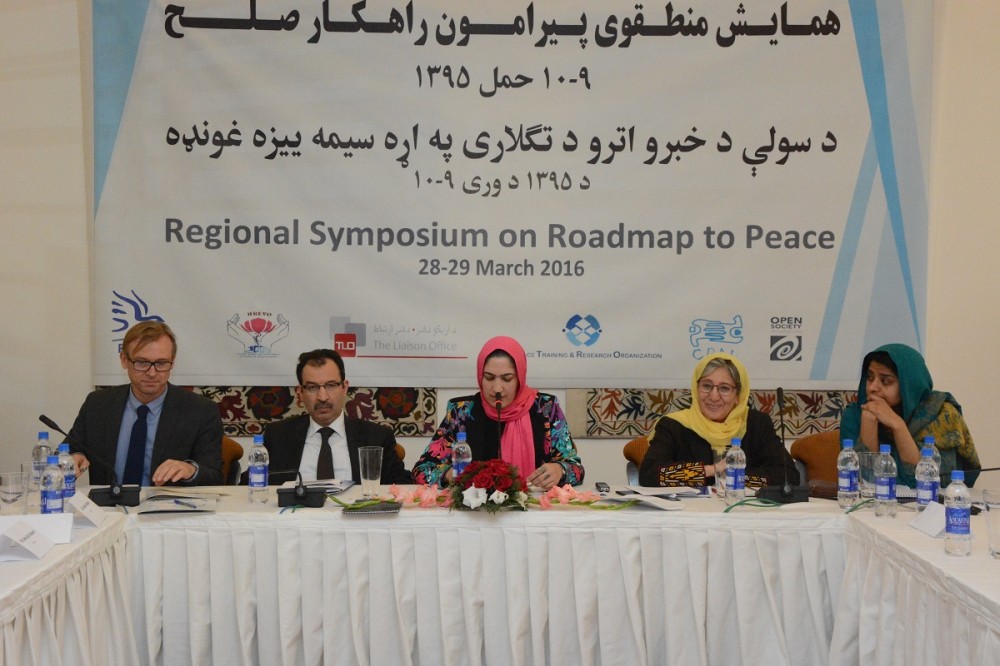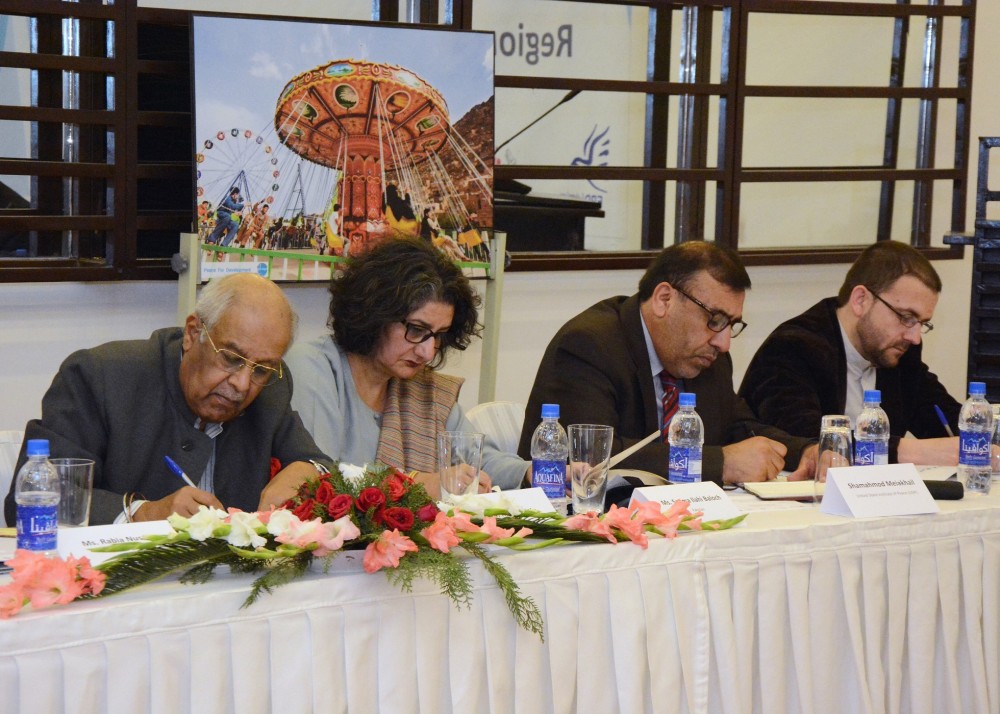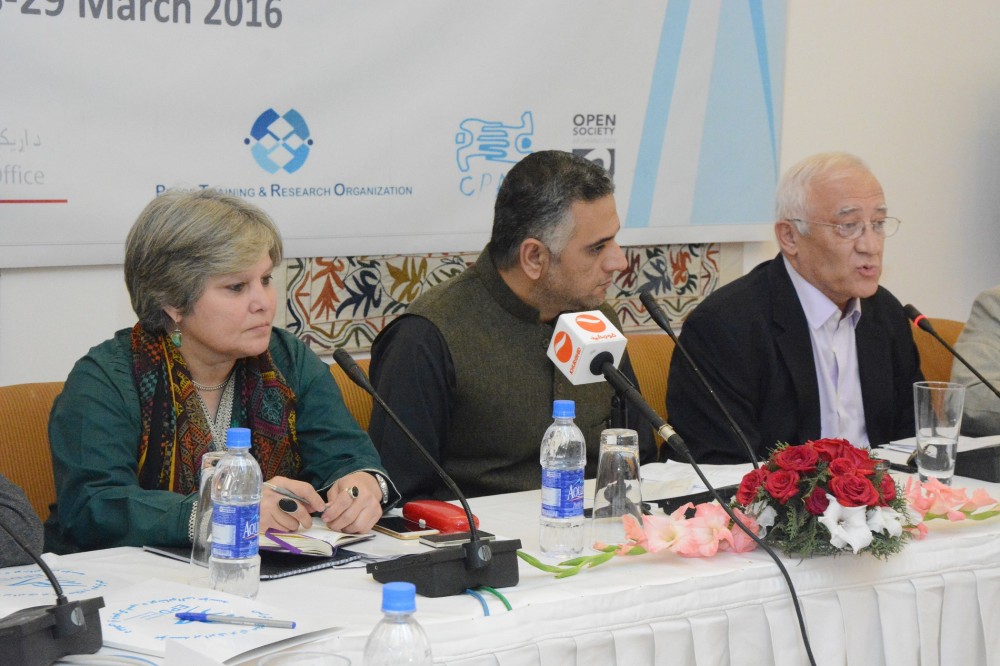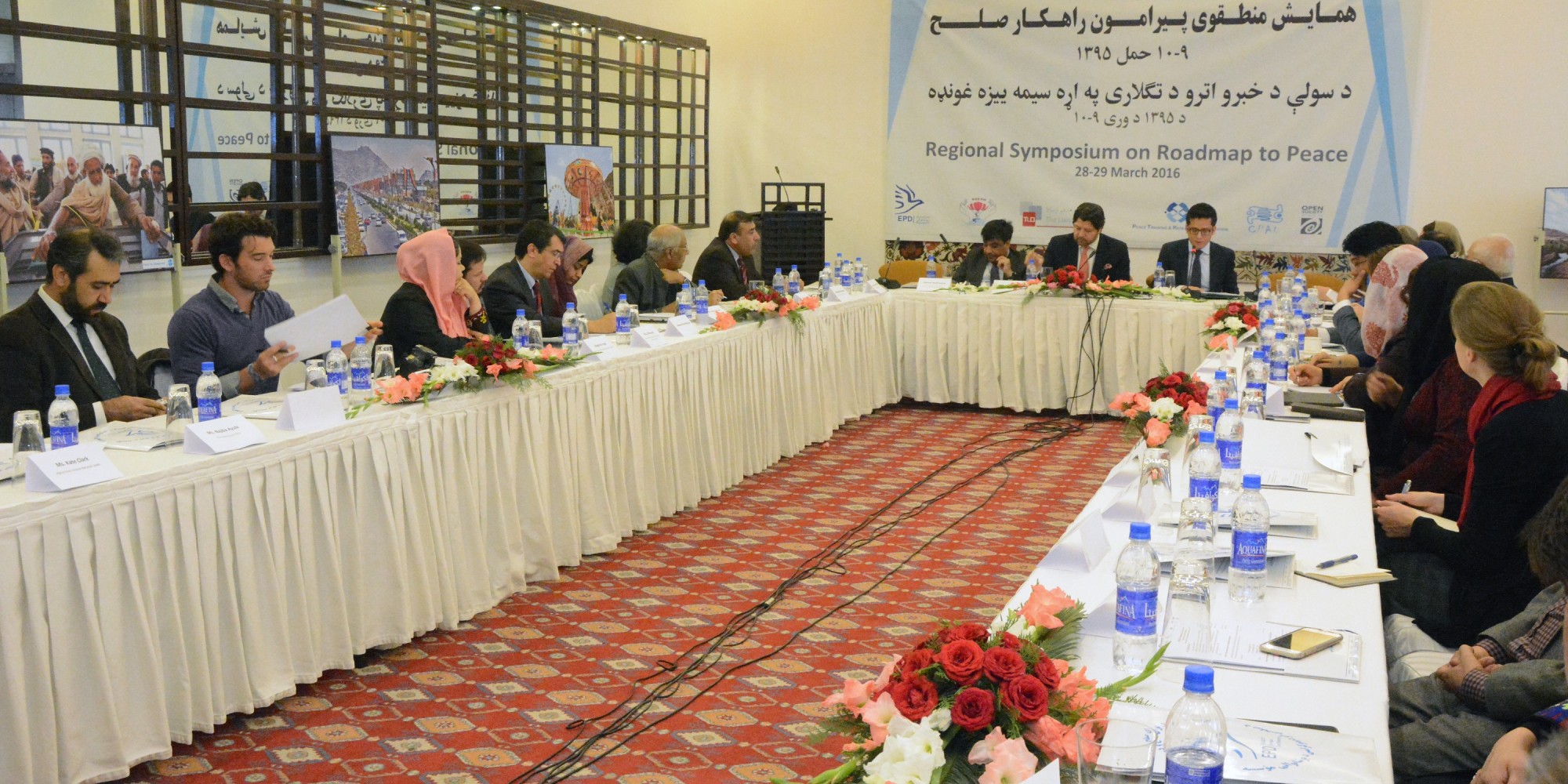 In January 2016, 70 peace activists and civil society representatives from provinces of Afghanistan attended the National Symposium on the Roadmap to Peace. Half of those in attendance were women, and the input of the audience and speakers were incorporated into the findings of subsequent publication entitled the Roadmap to Peace. The findings of the research were shared with regional and international experts through a subsequent assembly, called the Regional Symposium on the Roadmap to Peace in Afghanistan. This second event was once again made possible by the Open Society Afghanistan (OSA), and through the cooperation of experts from such countries as Pakistan, India, Tajikistan, Turkey, Germany and the UK over 28-29 March 2016.
In January 2016, 70 peace activists and civil society representatives from provinces of Afghanistan attended the National Symposium on the Roadmap to Peace. Half of those in attendance were women, and the input of the audience and speakers were incorporated into the findings of subsequent publication entitled the Roadmap to Peace. The findings of the research were shared with regional and international experts through a subsequent assembly, called the Regional Symposium on the Roadmap to Peace in Afghanistan. This second event was once again made possible by the Open Society Afghanistan (OSA), and through the cooperation of experts from such countries as Pakistan, India, Tajikistan, Turkey, Germany and the UK over 28-29 March 2016.
Based on the findings of the above symposia, the experts in attendance have been able to integrate its lessons into their day-to-day work. The key recommendations apply to the international community, governments and civil society organisations alike. As well as this, based on its findings, EPD has prepared a policy brief which will continue to inform its advocacy work at both a national and local level.
In addition to bringing together experts, the symposia allowed EPD to present the findings of key research undertaken in partnership with other local NGOs as part of the Salah consortium: CPAU, HREVA, PTRO and TLO. This analysis, the Roadmap to Peace, will be shared with High Peace Council and other organisations which work for peacebuilding in Afghanistan.
 At the National Symposium, participants agreed upon the following resolutions:
At the National Symposium, participants agreed upon the following resolutions:
- To focus on thorough and comprehensive reforms in the structure and peace strategy of the High Peace Council;
- To dismantle and disarm illegal armed groups, while creating reliable job opportunities for former militants to facilitate their integration into the peace process;
- To effectively enhance its efforts in fighting extremisms and radical ideologies being waged by religious ‘Madrassas’ and the infiltration of foreign fighters;
- To further strengthen good governance and outreach to rural populations, in terms of social services, facilities and accessibility to education and employment opportunities;
- To support and protect civil society institutions’ involvement in peace processes and talks, and;
- To consolidate its cooperation with regional countries and the international community in enhancing efforts for peace and stability in Afghanistan.
Building upon this, attendees at the Regional Symposium agreed on the following critical points:
- Lessons can be learnt from the Tajik peace process, historically one of the most successful peace negotiations of all time, in which the Government of Afghanistan played a key role. In contrast to the current “security first” approach to the intervention in Afghanistan, peace-brokers should recognise that any Taliban foothold would be devastating to the region, that dialogue must be inclusive and that a political settlement would be essential.
- A more inclusive approach to dialogue, incorporating civil society groups, can reduce the danger that the Taliban are given legitimacy as one of the only non-state actors brought to the negotiation table, and give a voice in the vulnerable “silent majority”.
- Beyond their role in negotiations, civil society must be supported in their efforts to educate local people, and to act as watchdogs where development efforts are failing.
- Regionally, there is need for enhanced economic cooperation between Afghanistan, India and Pakistan. This would help to build the stake these countries have in achieving a region-wide stability, and to provide the jobs and prosperity that can act as a powerful local incentive for peace.
- Because of the strong regional dimension to the conflict, the intervention of an international and well-regarded entity should be looked to with view to mediating negotiations. For this, attendees considered the UN the most reliable player, with the OIC perhaps lacking in peace mediation experience.
 An online version of the policy brief is available in Dari, Pashtu and English here.
An online version of the policy brief is available in Dari, Pashtu and English here.
The Roadmap research itself will be made available shortly; please check our website for details.

